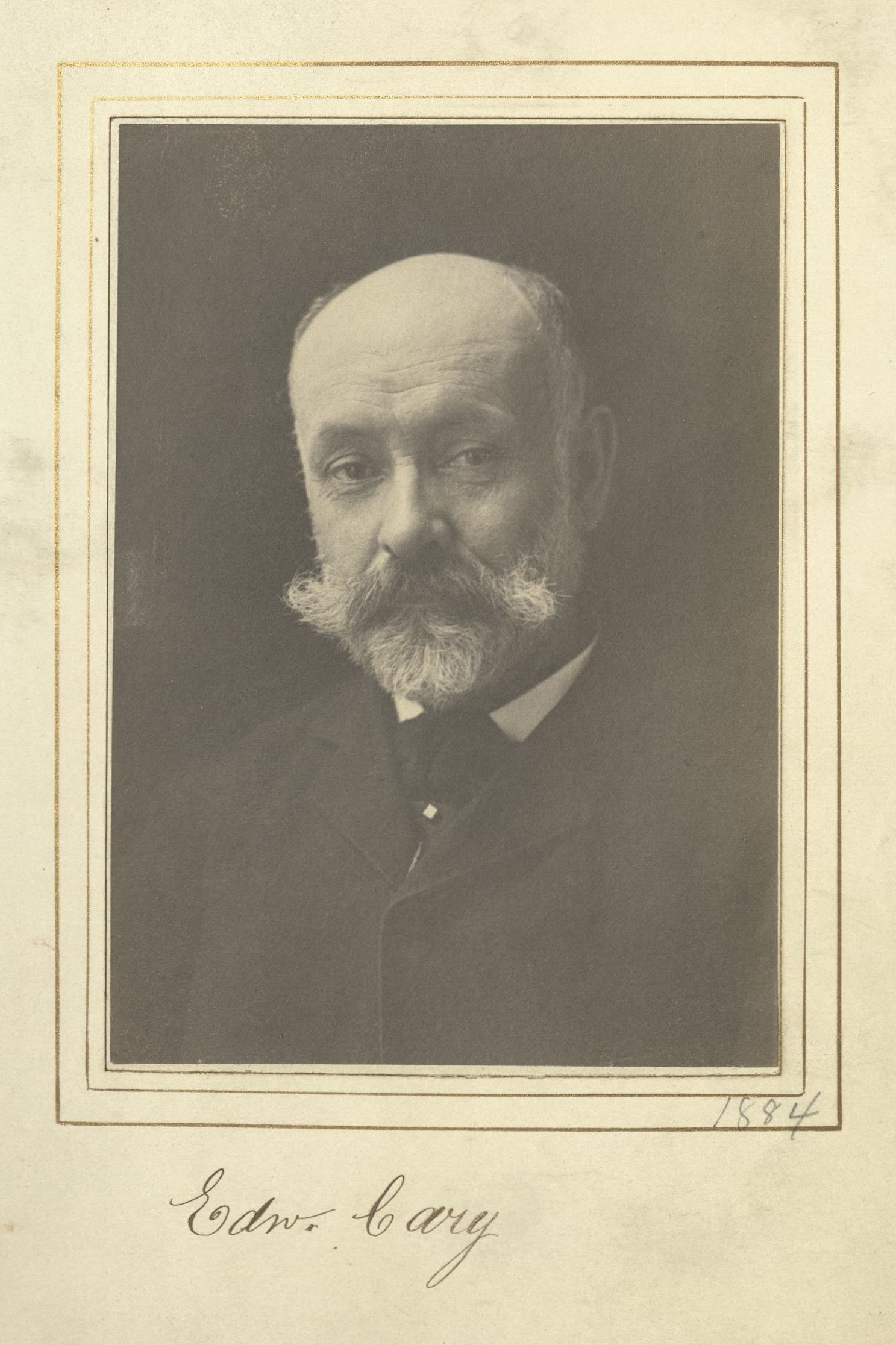Journalist
Centurion, 1884–1917
Born 5 June 1840 in Albany, New York
Died 23 May 1917 in New York (Brooklyn), New York
Buried Albany Rural Cemetery , Menands, New York
, Menands, New York
Proposed by George William Curtis and George Haven Putnam
Elected 1 November 1884 at age forty-four
Archivist’s Note: Secretary of the Century Association, 1901–1906
Proposer of:
Seconder of:
Century Memorial
The life and work of Edward Cary exemplify the power and influence of the anonymous editorial writer. Born in 1840 at Albany of Quaker parents, he graduated from Union College, and then having had the additional disciplinary benefit of two years’ study of the law, he passed straight to his true vocation of journalism. For seven years he edited the Brooklyn Union, and from that long apprenticeship passed to the editorial staff of the New York Times. To have been chosen by Jones of the Times was an honor and a certificate of ability, and then and there in the year 1871 Edward Cary, we will not say entered, but proceeded upon his life-career of helping to shape public opinion for right.
Such a man must have in his heart the militancy of the gospel of truth—a genial and persuasive gospel in him, but none the less effective for its lack of truculence. Yet it was warfare indeed, with benignant ends; for Cary was at once drawn into the great battle of the Times against the enormous corruption of the Tweed Ring. That battle won, the strife went on for better methods of conducting public affairs. The next immediate enemy was the Spoils System, and the struggle was for Civil Service Reform. Here he was a convinced and convincing advocate, and from 1881, as a member of the Executive Committee of the Civil Service Reform Association, his mind and heart did not rest from that high theme. Two more great arguments he was to sustain for years: that against tariff monopolies, and that against the fallacies of free silver. He was a master of both these subjects. He stood not only for the intellectual and moral truths of finance, but for the truth of righteousness, as when he urged his paper to renounce the cause of Blaine for that of Grover Cleveland in 1884.
These are some of the great matters for which Edward Cary wrote; and he also wrote the Life of George William Curtis, a life which was itself an exposition and advocacy of righteous causes. But to pass from the writer to the man, we who knew him recognized that in his daily friendly intercourse he still earned gentle truth in those unspotted hands. He brought it to the discharge of his duties, for five years, as the Secretary of our Association; there was just praise and little foolishness in his careful records of his fellow Centurians who had passed on. This kindly, tender-hearted, humorous but serious Edward Cary crowns the trio of our dead journalists, and his sweet personality dwells with us still.
Henry Osborn Taylor
1918 Century Association Yearbook

